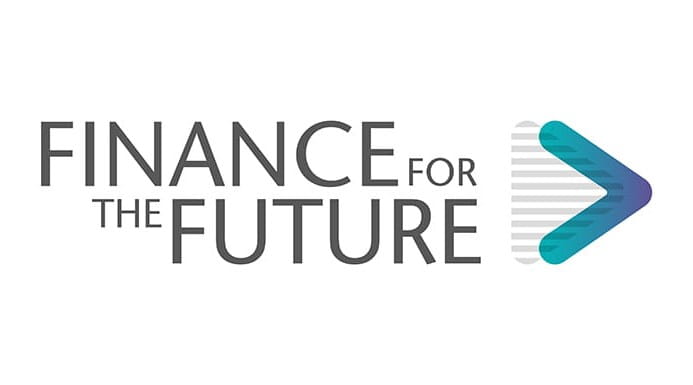The Global Reporting Initiative (GRI) framework is not enough on its own, says Caruana, referring to the work she is doing with Giovanna Dabbicco (a researcher at the National Statistical Office of Italy) on the GRI. It needs to be linked with management accounting. Her work shows that accounting can do more than report on past events. It can be a basis for policymakers to identify the required allocation of resources to achieve the Sustainable Development Goals (SDGs).
Caruana is a Certified Public Accountant and a Senior Lecturer at the Department of Accountancy of the University of Malta. Her area of interest is public sector accounting, in particular government accounting (including financial reporting, auditing and budgeting at both central and local level).
She is at pains to point out that the work they are doing on the GRI is not to assess the success or failure of the GRI. “The GRI provides a number of ratios (monetary and non-monetary) that can be used to somehow measure the level of achievement of the UN’s SDGs. Some of these ratios can be integrated in an environmental, social and governance (ESG) report,” she says.
Caruana and Dabbicco say that reporting is just a small part of the picture. “An ESG report is static, and it just gives you a picture of the situation at a certain point in time. They seem like target goal posts, which one can say OK we are here now for example, we have 20% of the population living below the poverty line, and by the end of the year we want to be there – 10% of the population living below the poverty line. Then the questions arise: ‘How shall we move forward?’ ‘What can we really do to improve the situation?’, ‘Which decisions are required so that we achieve the desired targets?’.
Their research looks at a more fundamental role for accounting in achieving the SDGs. “We focus on the public sector accounting system because it is from here that policy decisions are taken – policy decisions that have ripple effects across the economy, including private sector entities,” Caruana says.
Of course, good data collection protocols are fundamental to achieving the SDGs which is why, she says, attention needs to be focused on the actual design of the accounts. “The chart of accounts needs to be designed such that each line item is coded/linked to an SDG,” she says. “In this way, starting from one ESG report at a fixed date, we can plan what we need to spend to get the desired results – as well as how and where we need to invest.”
Caruana points out that budgeting takes a central role in meeting the SDGs. “Through budgeting, accounting takes on a proactive role. It is no longer just looking backwards, like normative financial reports, but budgeting makes us look forward, so that accounting can help decision making, planning and control – leading to the achievement of SDGs,” she says.
“The public sector can set the tone. Effective decisions can be taken that cascade onto the private sector in a positive way. And then we move from macro to micro, with private sector entities being inspired to participate in the global crusade.”
Needless to say, it is very important for policy making by various sections of the public administration, and across different levels of government, to be co-ordinated. A joined-up government, especially when it comes to SDGs. In this way, the public sector would be more effective by demonstrating determination in achieving them.
So, what does the accounting profession need to do in terms of resources, training, skills, systems, to make the framework work more effectively going forward? “The accounting profession is well equipped to participate in the task at hand,” Caruana responds. “But it needs to be ready to move away from the traditional financial report. Embellishing the traditional financial statements with more disclosures and narrations will just make it more cumbersome than it already is.”
She points out that the ESG report is not designed for prospective investors of a reporting entity. “The purpose of the ESG report should be to make the reporting entity accountable to the community in which it is immersed. More importantly, the ESG report should help management take the required decisions so that operations have a positive impact on SDG achievement,” she says.
“Management accounting practices are key – and this is where more training needs to be focused. Awareness of the SDGs should also be raised, as well as the requirement for decision-making around them. IT skills are also very important so that the professional can manipulate the chart of accounts accordingly. We may also be dealing with big-data issues here because the measures require both financial and non-financial data. Even statistical skills would be useful.”
Caruana and Dabbicco say that the GRI is workable as a very wide framework. “However, we can envisage difficulties in applying the GRI framework in the public sector due to the size of entities and the availability of information, as well as the difficulty of comparing different types of organisations. Nevertheless, the GRI framework is designed on a macro level and applies to governments and whole economies. At a micro level, the individual reporting organisation can refer to the GRI indicators and examine their role in them,” says Caruana.
By way of example, Caruana refers to Goal 6 of the SDGs: ‘Ensure availability and sustainable management of water and sanitation for all’. Target 6.1 is: ‘By 2030, achieve universal and equitable access to safe and affordable drinking water for all.’ The GRI indicator is: ‘Proportion of population using safely managed drinking water services.’ She concludes: “So, you can see that the GRI indicator is targeted for use at a macro level. At a micro level, the individual water companies can investigate what their role is in this endeavour. In other words, what are they contributing to improve this proportion? And they can design their accounting system (through coding in the chart of accounts) to provide management with the related data to help them make decisions accordingly.”
Caruana and Dabbicco say that although there is still considerable room for improvement in the quality of reporting under the GRI, they think that the GRI will continue to be the most widely referred to framework (rather than used). “The reason is that the GRI framework provides the first step in the interpretation of the SDGs,” says Caruana. “However, on its own, the GRI Framework is rather pointless because it only provides static measures. To be effective and useful, the GRI Framework should be used in combination with the accounting system and linked with the budgeting process.”
But to achieve a real step change, they exhort the accountancy profession to move beyond the usual style of reporting, refrain from adding more to the corporate report and truly participate in the achievement of the SDGs. In other words, the accountancy profession needs to focus on making accounting proactive in the achievement of SDGs. The profession has much more to offer than standard setting and ex-post reporting.
COP26: acting together
Find inspiration, information and practical resources to support the goals of the UN Climate Change Conference in Glasgow and explore why it represents a critical time for the profession.




